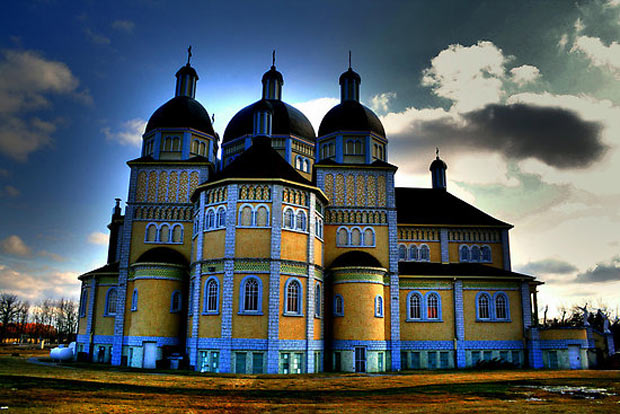 THUNDER BAY – Canadians of Ukrainian decent are about to celebrate Christmas. Under the Julian Calendar, this Sunday is Christmas Eve. For Orthodox Christians, it is a time for celebration. A Holy Supper is part of the Christmas Eve celebrations. Carols are sung, and Svyatyi brings the children gifts. Rituals include religious services and gathering of family and friends. There are over 330,000 Ukrainian Ontarians, and while not all may celebrate Ukrainian Christmas, many people do.
THUNDER BAY – Canadians of Ukrainian decent are about to celebrate Christmas. Under the Julian Calendar, this Sunday is Christmas Eve. For Orthodox Christians, it is a time for celebration. A Holy Supper is part of the Christmas Eve celebrations. Carols are sung, and Svyatyi brings the children gifts. Rituals include religious services and gathering of family and friends. There are over 330,000 Ukrainian Ontarians, and while not all may celebrate Ukrainian Christmas, many people do.
In Thunder Bay services are held at Ukrainian Orthodox Churches in the city and across the region.
The Gregorian Calendar is followed by most. However others follow the Julian Calendar. Those who do are about to celebrate Christmas, as December 25th under the Julian Calendar is on January 7th on the Gregorian Calendar.
For Ukrainians, Christmas is one of the most important holidays of the year. Ukrainian Christmas festivities begin on Christmas Eve (January 6) and conclude on the Feast of the Epiphany (January 19) following the Julian calendar.
The Christmas Eve Supper or Svyata Vecherya (Holy Supper) brings the family together to partake in Lenten foods and begins the traditional holiday celebrations. The customs of Christmas Eve are dedicated to God, to the welfare of the family and to the remembrance of one’s ancestors.
In preparation for Svyata Vecherya, the floor is covered with straw and fresh hay is placed upon the table. This is to recall the birth of Christ, born in the stable and laid in a manager. A white or embroidered table cloth is then spread over the table. A didukh (sheaf of wheat stalks) which means “grandfather,” is placed in the corner under religious icons as a sign of a prosperous harvest and the gathering of the family.
A kolach (special loaf of bread) is placed on the table with a lit beeswax candle placed in its center. This is to remind the family of the Star of Bethlehem. The kolach is braided from three rings of dough symbolizing the Holy Trinity and is circular in form representing eternity.
The departed of the family are remembered on this day by the placing of an extra table setting. The extra setting is also there as a reminder that a passing stranger is welcome. The Holy Supper cannot begin until the appearance of the first star in the eastern sky. It is the role of the children to search the night sky for the first star as well as decorate the Christmas tree.
Once the star has been seen, the didukh is positioned in its place of honor by the head of the household and everyone gathers at the table. The head of the household raises a spoonful of kutia (cooked wheat, ground poppy seeds and honey) asks for God’s blessing on his family and extends his best wishes and greetings with “Khrystos Rodyvsya” (Christ is born). Everyone replies “SlavimoYoho” (Let us glorify Him). The partaking of the kutia is the most symbolic ritual of the entire Svyata Vecherya and everyone must have at least a spoonful.
The meal itself consists of twelve meatless dishes symbolizing Christ’s twelve apostles. During the supper it is customary for carolers to enter the home and wish the family happiness and blessings of the Infant Child by the singing of traditional carols (Koliady).
On January 19th the Feast of Jordan / Epiphany is celebrated. This holiday symbolizes the baptism of Christ in the river Jordan. In special and very unique religious services, water is blessed and brought home by the faithful. Priests will also visit parishioners to bless their homes with the Holy Water thus concluding the traditional festivities of the season.
